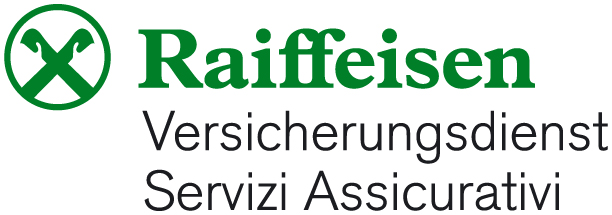

Raiffeisen Servizi Assicurativi Srl SB

South Tyrol, Italy
May 2019
Non-life insurance
Service with Minor Environmental Footprint
Italy
The Raiffeisen Versicherungsdienst Ltd is the insurance specialist in the Autonomous Province of Bolzano - South Tyrol (Italy). The company offers, regardless of income and financial possibilities, an optimal coverage of personal needs. Since its foundation in 1990 the company creates the conditions for the Raiffeisen Banks in South Tyrol to carry out the insurance business in favor of local private households and businesses. By specially developed insurance solutions the Raiffeisen Versicherungsdienst offers a unique insurance coverage to families in order to provide them access to non-public health services and protection against financial difficulties in the event of disability or death. In the corporate customer segment alike, the Raiffeisen Versicherungsdienst hedges small and medium-sized enterprises, craft enterprises and all other occupational categories of local minorities in the property, personal and casualty sector. Mountain farmers can make use of a customized insurance program in order to protect themselves against sever financial risks. Finally, the company’s bilingual customer assistance in the claims management presents a significant benefit for the linguistic minorities in remote areas of South Tyrol.
Overall B Impact Score
Governance 21.8
Governance evaluates a company's overall mission, engagement around its social/environmental impact, ethics, and transparency. This section also evaluates the ability of a company to protect their mission and formally consider stakeholders in decision making through their corporate structure (e.g. benefit corporation) or corporate governing documents.
What is this? A company with an Impact Business Model is intentionally designed to create a specific positive outcome for one of its stakeholders - such as workers, community, environment, or customers.
Workers 33.9
Workers evaluates a company’s contributions to its employees’ financial security, health & safety, wellness, career development, and engagement & satisfaction. In addition, this section recognizes business models designed to benefit workers, such as companies that are at least 40% owned by non-executive employees and those that have workforce development programs to support individuals with barriers to employment.
Community 24.9
Community evaluates a company’s engagement with and impact on the communities in which it operates, hires from, and sources from. Topics include diversity, equity & inclusion, economic impact, civic engagement, charitable giving, and supply chain management. In addition, this section recognizes business models that are designed to address specific community-oriented problems, such as poverty alleviation through fair trade sourcing or distribution via microenterprises, producer cooperative models, locally focused economic development, and formal charitable giving commitments.
Environment 7.5
Environment evaluates a company’s overall environmental management practices as well as its impact on the air, climate, water, land, and biodiversity. This includes the direct impact of a company’s operations and, when applicable its supply chain and distribution channels. This section also recognizes companies with environmentally innovative production processes and those that sell products or services that have a positive environmental impact. Some examples might include products and services that create renewable energy, reduce consumption or waste, conserve land or wildlife, provide less toxic alternatives to the market, or educate people about environmental problems.
Customers 0.4
Customers evaluates a company’s stewardship of its customers through the quality of its products and services, ethical marketing, data privacy and security, and feedback channels. In addition, this section recognizes products or services that are designed to address a particular social problem for or through its customers, such as health or educational products, arts & media products, serving underserved customers/clients, and services that improve the social impact of other businesses or organizations.